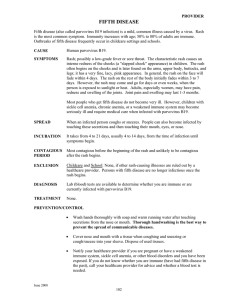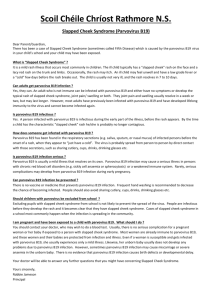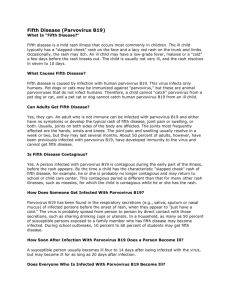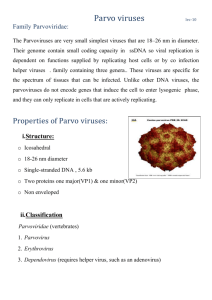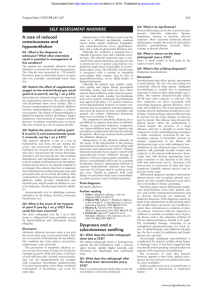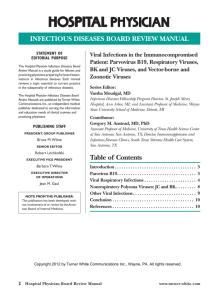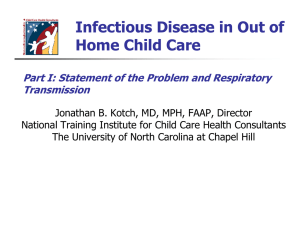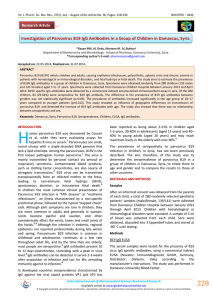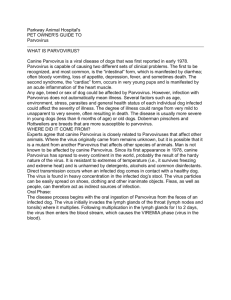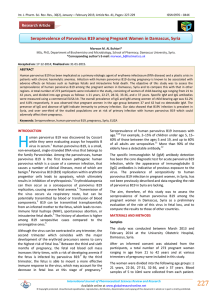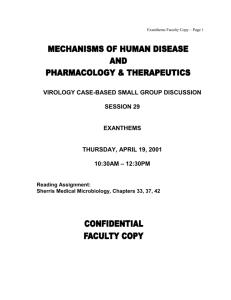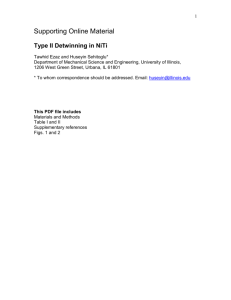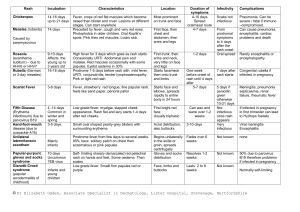Parvovirus
advertisement
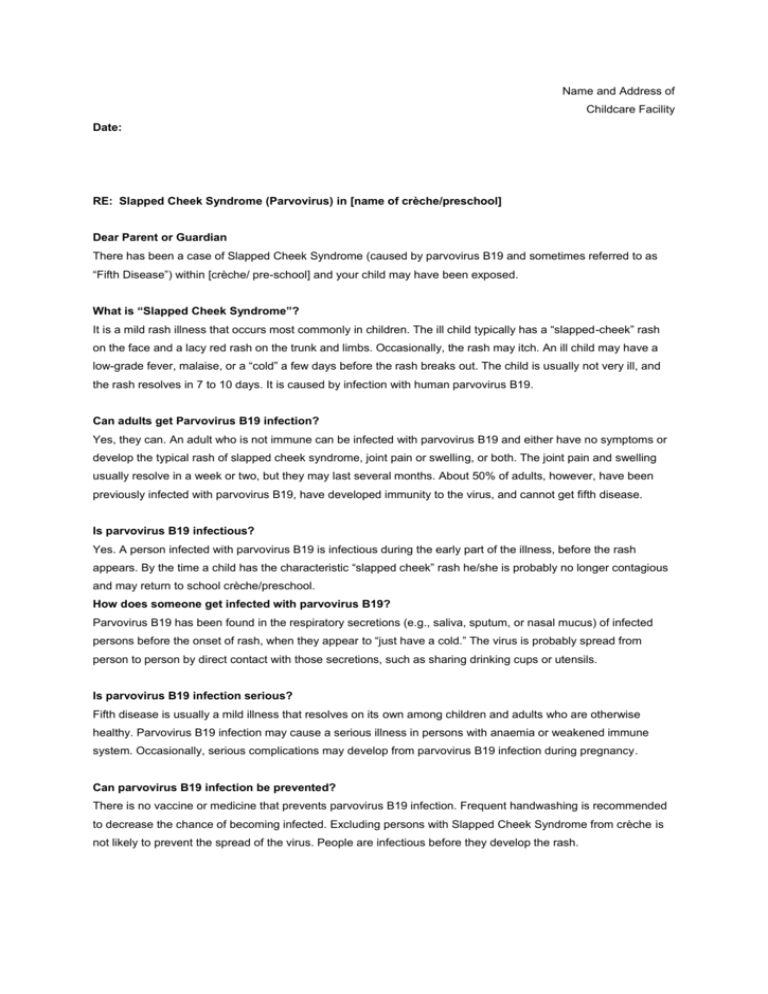
Name and Address of Childcare Facility Date: RE: Slapped Cheek Syndrome (Parvovirus) in [name of crèche/preschool] Dear Parent or Guardian There has been a case of Slapped Cheek Syndrome (caused by parvovirus B19 and sometimes referred to as “Fifth Disease”) within [crèche/ pre-school] and your child may have been exposed. What is “Slapped Cheek Syndrome”? It is a mild rash illness that occurs most commonly in children. The ill child typically has a “slapped-cheek” rash on the face and a lacy red rash on the trunk and limbs. Occasionally, the rash may itch. An ill child may have a low-grade fever, malaise, or a “cold” a few days before the rash breaks out. The child is usually not very ill, and the rash resolves in 7 to 10 days. It is caused by infection with human parvovirus B19. Can adults get Parvovirus B19 infection? Yes, they can. An adult who is not immune can be infected with parvovirus B19 and either have no symptoms or develop the typical rash of slapped cheek syndrome, joint pain or swelling, or both. The joint pain and swelling usually resolve in a week or two, but they may last several months. About 50% of adults, however, have been previously infected with parvovirus B19, have developed immunity to the virus, and cannot get fifth disease. Is parvovirus B19 infectious? Yes. A person infected with parvovirus B19 is infectious during the early part of the illness, before the rash appears. By the time a child has the characteristic “slapped cheek” rash he/she is probably no longer contagious and may return to school crèche/preschool. How does someone get infected with parvovirus B19? Parvovirus B19 has been found in the respiratory secretions (e.g., saliva, sputum, or nasal mucus) of infected persons before the onset of rash, when they appear to “just have a cold.” The virus is probably spread from person to person by direct contact with those secretions, such as sharing drinking cups or utensils. Is parvovirus B19 infection serious? Fifth disease is usually a mild illness that resolves on its own among children and adults who are otherwise healthy. Parvovirus B19 infection may cause a serious illness in persons with anaemia or weakened immune system. Occasionally, serious complications may develop from parvovirus B19 infection during pregnancy. Can parvovirus B19 infection be prevented? There is no vaccine or medicine that prevents parvovirus B19 infection. Frequent handwashing is recommended to decrease the chance of becoming infected. Excluding persons with Slapped Cheek Syndrome from crèche is not likely to prevent the spread of the virus. People are infectious before they develop the rash. I am pregnant and have been exposed to a child with parvovirus B19. What should I do? You should contact your doctor, who may wish to do a blood test. Usually, there is no serious complication for a pregnant woman or her baby if exposed to a person with slapped cheek syndrome. About 50% of women are already immune to parvovirus B19, and these women and their babies are protected from infection and illness. Even if a woman is susceptible and gets infected with parvovirus B19, she usually experiences only a mild illness. Likewise, her unborn baby usually does not have any problems attributable to parvovirus B19 infection. Sometimes, however, parvovirus B19 infection will cause the unborn baby to have severe anaemia and the woman may have a miscarriage. This occurs in less than 5% of all pregnant women who are infected with parvovirus B19 and occurs more commonly during the first half of pregnancy. There is no evidence that parvovirus B19 infection causes birth defects or mental retardation. Yours sincerely, ________________________________________ Crèche Owner/ Manager
